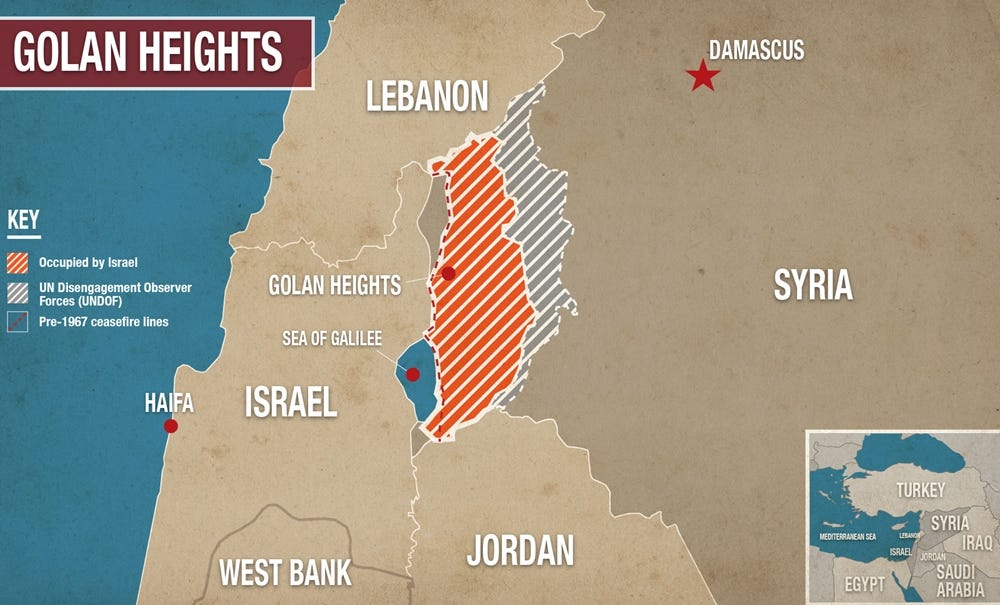Understanding the "Alpha Line", UNSC Resolution 350, and Why Israel Entered Syria
The UN's Peacekeeping Failures in the Golan Heights and the Growing Threats to Stability
In the aftermath of the 1973 Yom Kippur War, the United Nations Security Council passed Resolution 350 on May 31, 1974. This resolution established the United Nations Disengagement Observer Force (UNDOF), tasked with monitoring the ceasefire between Israel and Syria and overseeing the disengagement of forces along the Golan Heights, particularly in the demilitarized zone (DMZ).
One of the key aspects of the DMZ is the Alpha Line, which marks the separation between Israeli and Syrian forces. This line was established to enforce the disengagement and prevent direct confrontation between the two military forces, helping to stabilize the area following the war. UNDOF is responsible for ensuring that both sides adhere to this boundary and maintaining peace within the DMZ.
UNDOF’s mandate was initially set for a six-month period, with the provision for renewals subject to further Security Council resolutions. Over the years, the mission has been renewed continuously, making it one of the longest-running peacekeeping operations in history. Its role has been to observe the cessation of hostilities, provide a buffer between Israeli and Syrian forces, and ensure the maintenance of peace in the region.
The latest extension of UNDOF's mandate was on June 30, 2024, when the Security Council extended the mission for another six months, until December 31, 2024. In its resolution, the Council requested the Secretary-General to ensure that UNDOF has the necessary capacity and resources to carry out its mandate “in a safe and secure way.”
This means that António Guterres, as the UN Secretary-General, is tasked with ensuring that UNDOF forces in the DMZ, including along the Alpha Line, are adequately equipped and protected to maintain peace.
However, the UN's commitment to its basic peacekeeping mandates continues to fall short. On December 7, 2024, Israel was forced to intervene and protect UNDOF forces from rebel groups seizing parts of Syria. This incident lays bare the glaring failure of the UN in safeguarding its peacekeepers and maintaining stability in regions under its watch. While the UN focuses its energy on condemning Israel—such as its December 3rd resolution demanding Israel return the Golan Heights, even as Syria teeters on the brink of collapse—it neglects its primary responsibility of ensuring the safety of peacekeeping missions in volatile zones. https://english.alarabiya.net/News/middle-east/2024/12/07/israeli-military-says-it-is-assisting-un-force-in-repelling-attack-in-syria-
The ongoing instability in the Golan Heights is a direct result of the UN's misplaced priorities. Instead of providing the necessary support to its peacekeepers and addressing the real security threats on the ground, the UN remains fixated on unrealistic resolutions that ignore the deteriorating situation in Syria. The UN's failure to uphold its fundamental peacekeeping objectives is a clear demonstration of how the international body continues to fail in fulfilling its most basic mandates, while obsessing over political agendas that do little to promote real peace.




